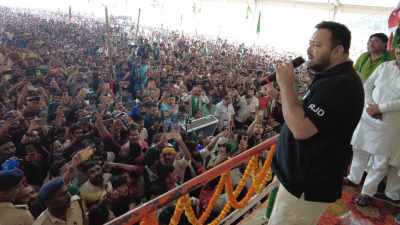A baby goat for Onam: How school came up with a livelihood plan for students, tribal village
Seven students were selected as beneficiaries based on a door-to-door assessment of their socio-economic background
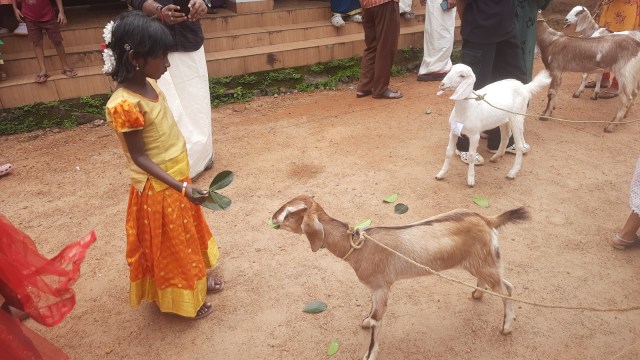 ‘Onathinnoru Kunjaadu (A goat kid for Onam)’, is an attempt to help students from some of the most economically vulnerable tribal families in Thulapally find a means of sustenance through goat rearing. (Express Photo)
‘Onathinnoru Kunjaadu (A goat kid for Onam)’, is an attempt to help students from some of the most economically vulnerable tribal families in Thulapally find a means of sustenance through goat rearing. (Express Photo)On a hot weekday morning, Salman Khan, 16, stood with six other students on the open ground of the Government Higher Secondary School Kissimum, in Thulapally, a village in south Kerala’s Pathanamthitta district, waiting to receive his Onam gift. A little distance away, the ‘gifts’ — seven goat kids — stood on wobbly legs, bleating as they waited to be handed over to the students.
A brainchild of principal Dr Vijesh V, the scheme, ‘Onathinnoru Kunjaadu (A goat kid for Onam)’, is an attempt to help students from some of the most economically vulnerable tribal families in Thulapally find a means of sustenance through goat rearing.
“Before the school closed for Onam vacation, we selected seven students as beneficiaries. They were picked after the teachers did a door-to-door assessment of the socio-economic background of the students,” says principal Vijesh.
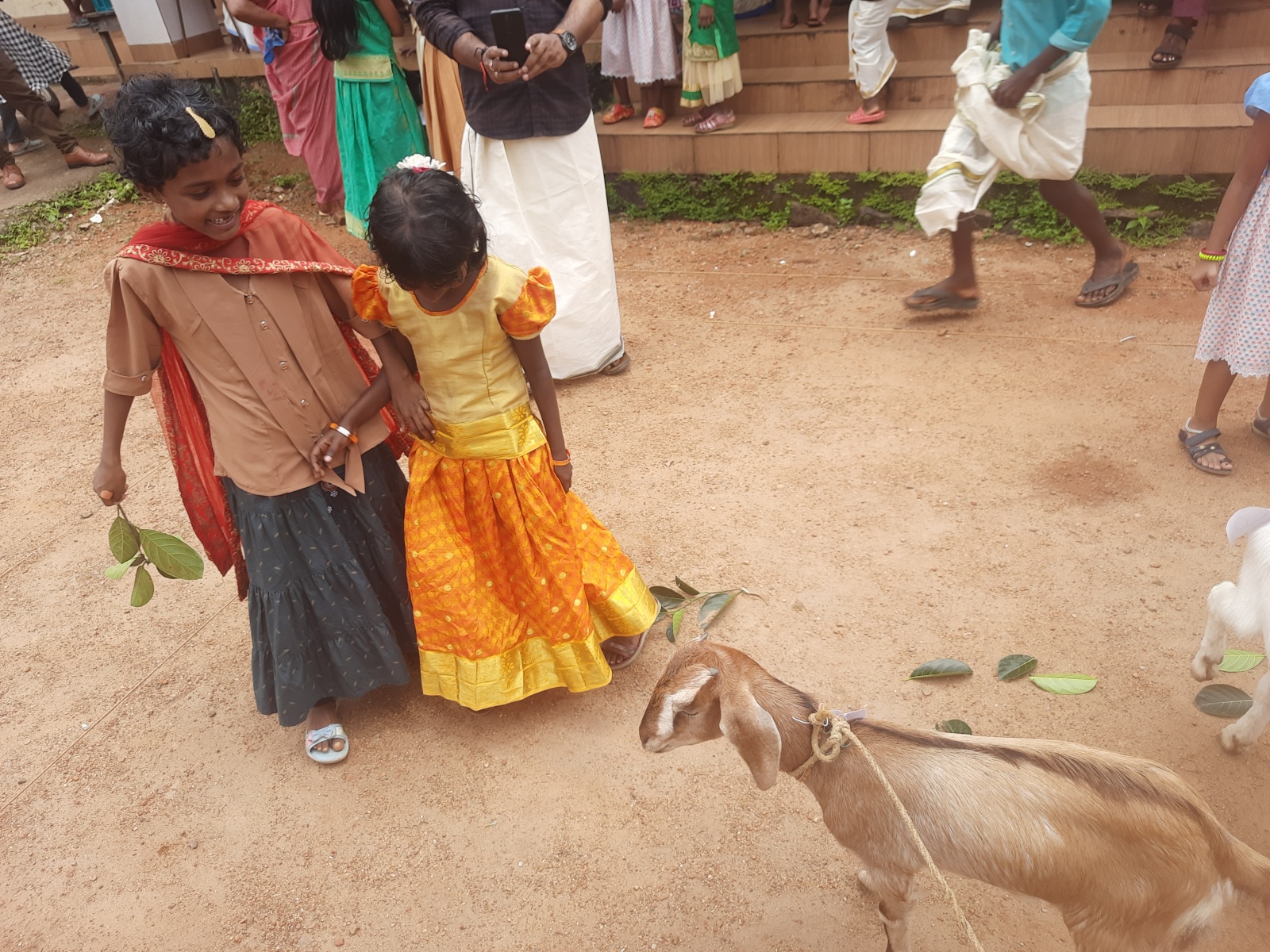 Located in rural Thulapally, on the way to the shrine of Sabarimala, the school has 187 students, 42 of them from tribal communities. (Express Photo)
Located in rural Thulapally, on the way to the shrine of Sabarimala, the school has 187 students, 42 of them from tribal communities. (Express Photo)
Teachers and villagers then pooled in money to buy the goats, each of which cost around Rs 8,000. “We started with seven children because we could only pool in money for seven goats, but we plan to take this scheme forward,” says Vijesh.
The animals are insured and the beneficiaries are made to sign an agreement that they will donate the first female progeny of the goat to the school in order to get the cycle going for more students.
Located in rural Thulapally, on the way to the shrine of Sabarimala, the school has 187 students, 42 of them from tribal communities. While their parents work as daily wagers or depend on forest produce for their livelihoods, the children pitch in with odd jobs and earn some extra money during the Sabarimala pilgrimage season.
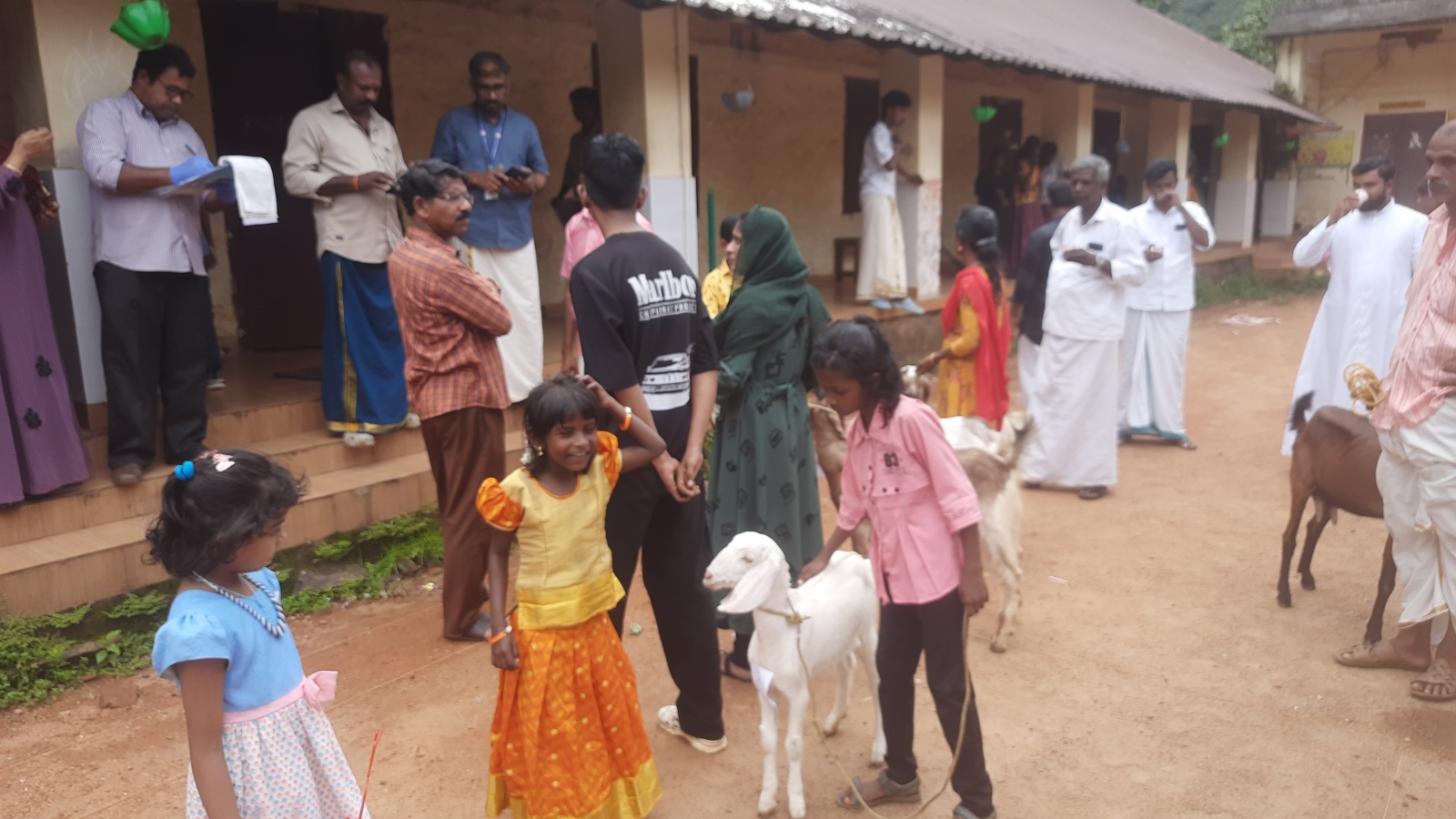 A photo of the goat distribution event at the school. (Express Photo)
A photo of the goat distribution event at the school. (Express Photo)
“This is a small effort to help the families of these children and, in the process, see if the children can stay back in school and continue with their education without worrying about their livelihoods,” says the principal.
By now, Salman has been handed a brown goat kid. “I will name her Pinky,” he says. The goat is now straining at the rope tied to its neck as it attempts to eat the leaves that Salman’s friend has plucked off a jackfruit tree. Salman’s mother, a single parent, does odd jobs while his grandmother supports the family with her scrap business.
Nearby, Vachas Tejas Sravan, 17, is trying to pacify his goat that’s bleating in pain after the insurers punched a tag to its ear. Vachas, the son of daily wage labourers, says he hopes “to become a teacher some day”.
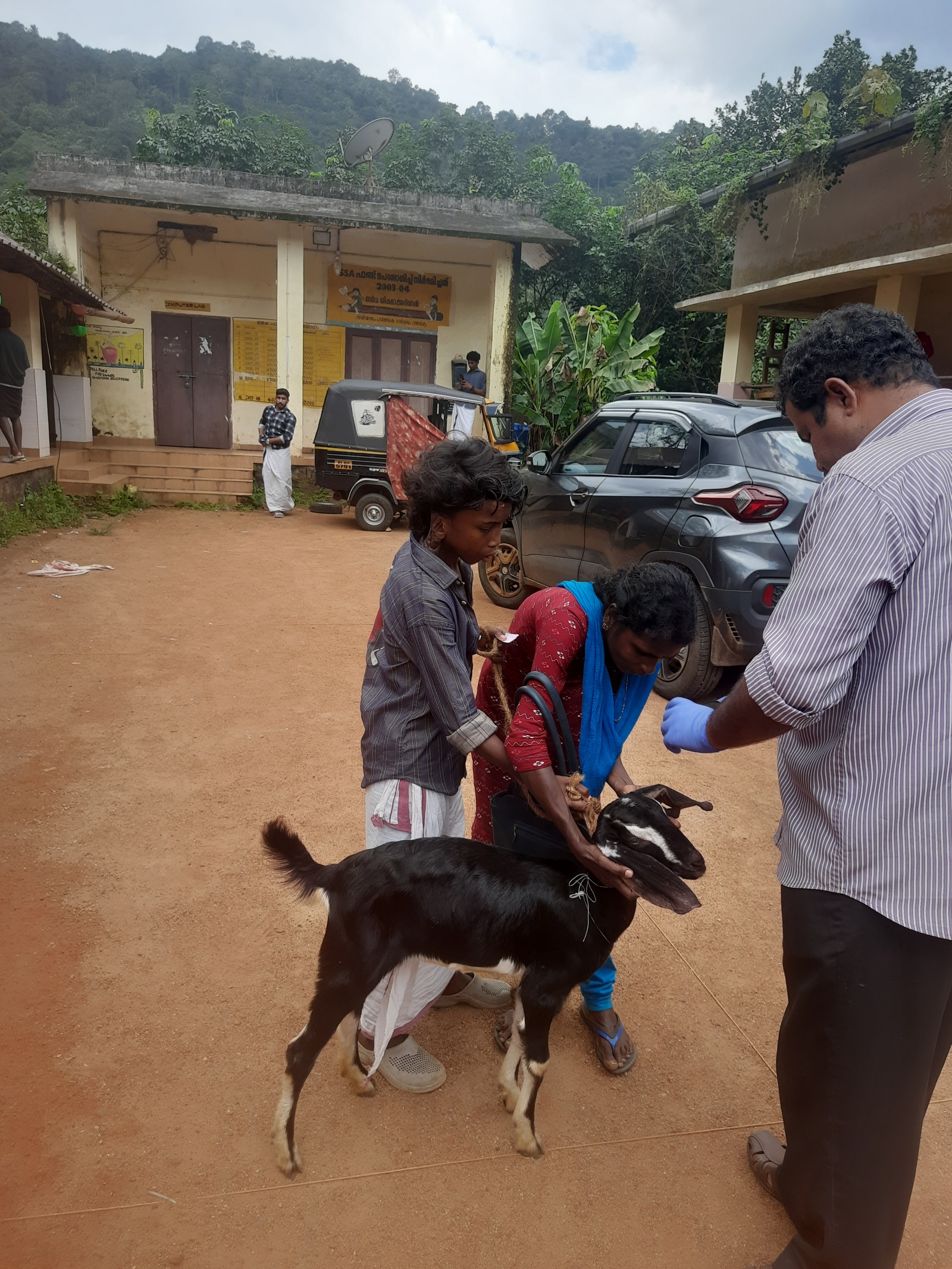 Insurance official putting an ear tag for the goat. (Express Photo)
Insurance official putting an ear tag for the goat. (Express Photo)
The goat scheme is part of Punarjani, a community-led initiative launched by principal Vijesh this year, as part of which the school holds classes in embroidery, photography, badminton, yoga, PSC coaching and civil services coaching. The school also holds free UPSC coaching classes, conducted in collaboration with an institute in capital Thiruvananthapuram. The coaching lessons are open to students of classes 8 to 12 from nearby villages too.
Principal Vijesh says none of this would have been possible if all the 23 teachers had not been on board.
“These are among the poorest children. If they don’t come on time or don’t study well, it’s because of their circumstances at home. We went to their homes, interacted with them and decided to help in whatever way we could,” says Vishnu Mohan, who teaches Hindi in the school.
“Though we have a five-day week, we now work six days, from 9 am to 6 pm daily. On the sixth day of the week, we give them specific training in different skills depending on their areas of interest,” he adds.
A baby goat for Onam: ‘Onathinnoru Kunjaadu’, is an attempt to help students from some of the most economically vulnerable tribal families in Thulapally find a means of sustenance through goat rearinghttps://t.co/mfnyQo9ybZ pic.twitter.com/QFeRZSg5eM
Students depend on one bus that ferries them to school through the forest area. “We even changed our school timings from 9 am to 9.30 am to match the schedule of the bus,” says Mohan.
Besides the goat scheme, principal Vijesh and his team have come up with several programmes to keep the children interested in school and learning.
“We established a Pusthaka koodu (book nest) and Kuppaya koodu (cloth nest) at Thulapally junction, from where anyone can take books and clothes for free. The school also had a programme, Paadam Namukk Paadham (let’s sing our lessons), as part of which chapters from their syllabus were turned into parody of superhit songs so that children find it easy to learn,” says Vijesh.
 Before the school closed for Onam vacation, seven students were selected as beneficiaries. (Express Photo)
Before the school closed for Onam vacation, seven students were selected as beneficiaries. (Express Photo)
The teachers have also pooled in money to build a house for the family of a special child in the school. Their latest project involves teachers going to the houses of students every evening to help them with the day’s lessons. “We just started the programme. A teacher goes to one house and assembles students from the neighbourhood. This way, around 4-5 students get home tuitions,” says Vijesh.
Headmaster Shaji Kumar S says, “All this is possible only because everyone is part of this – the school staff, children, their parents. They are all ready to bring about change and children are enthusiastic too.”
B R Anila, Deputy Director Education, Pathanamthitta, says, “The school is holding a variety of academic and non-academic programmes to get more children. Retaining students in forest areas, especially those from the tribal communities, is difficult as they migrate.”
Villagers too credit the relentless efforts of the principal and the teachers for the progress the school has made. Once considered a “punishment posting” for its teachers, the institution, since 2013, has had a 100 per cent pass rate in Class 10.
“Earlier, parents didn’t want to send their children to this school. Now due to the efforts of the principal and the teachers, the entire area has progressed,” says Rajeev Varghese, an alumnus and a local Kerala Congress leader who now often contributes to the school’s development schemes.
Back at the school ground, Sachu Shaji, 14, son of MNREGA worker Sandhya M R, walks away with his goat that has a new name – Kingini. “My mother will like her,” says Sachu. Kingini bleats in approval.






- 01
- 02
- 03
- 04
- 05


